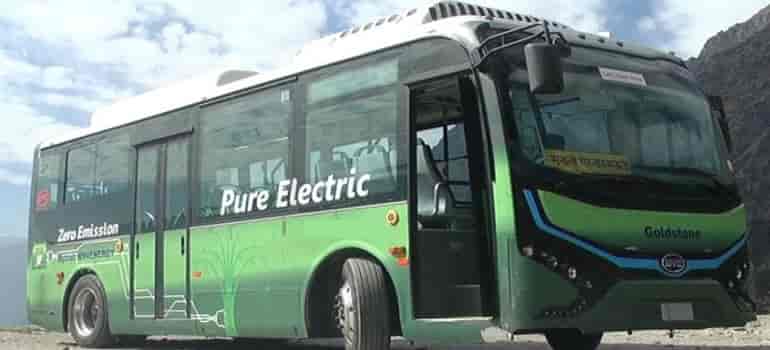
Hexa Research in its new report forecasts the global electric bus market demand to reach 222,221 units by 2025 and expand at a CAGR of 9.4% from 2017 to 2025. The growth could be attributed to subsidy allocation for purchasing these vehicles by governments of developing economies, including China and India and rising awareness regarding greenhouse emissions owing to implementation of stringent government regulations aimed at reducing air pollution.
For instance, owing to implementation of the U.S. EPA Clean Air Act, diesel school buses have been replaced with electric and natural gas ones in southern California by utilizing the combined funding from Diesel Emissions Reduction Act (DERA) and South Coast Air Quality Management District (SCAQMD).
The firm also expects increasing investments in the electric vehicles industry to improve penetration of electric buses in future. For instance, in June 2018, Belkommunmash, a Belarusian manufacturer of electric public transport vehicles, received an order for 60 electric buses from Minsk, Belarus.
Furthermore, in the same year, Yutong, a Chinese company, provided similar buses to a Germany-based mobility company, FlixBus, with an aim to offer sustainable intercity transit services.
On a global level, government of various countries are focusing on technological advancements to address environmental concerns and provide advanced services to customers. Moreover, companies are tapping the Europe market with support of favorable government policies. For instance, in February 2018, the European Union approved USD 82 million funds for electric buses in Germany. These supportive policies are expected to drive the market in future.
Key advantages of electric buses, such as lower emissions, improved air quality, and lower total cost of ownership, are expected to attract public transit providers noted Hexa Research .Governments are undertaking activities to increase adoption of such vehicles.
For instance, the Netherlands government mandated replacement of all fossil fuel vehicles through 100% sales of zero emission vehicle (ZEV) public transport buses by 2025, followed by 100% zero emission vehicle fleet in 2030.
In addition, manufacturers and transport organizations at a regional level are accelerating adoption of clean buses by signing the European Clean Bus Deployment Initiative says the firm.
According to the report China is expected to dominate the electric bus market by 2025 owing to strong foothold of numerous well-established companies, new product introduction, and growing market awareness towards electrically operated product forms.
Furthermore, well-established sales network and favorable government policies, including tax benefits and subsidies associated with production of these vehicles, are expected to remain a favorable factor in the electric bus market over the coming years.
The Government of China is focusing on manufacturing 7 million vehicles by 2025. In the current subsidy program, subsidy payments are expected to reach approximately USD 20 billion and USD 70 billion by 2020 and 2025, respectively.
Over the past few years, U.S. has observed a slower adoption rate of these vehicles than China and developed economies of Europe. In 2017, the U.S. Department of Transportation’s (DOT), Federal Transit Administration (FTA) announced a total budget of USD 84 million through implementation of Low or No Emission Vehicle Program.
There are about 300 electric public buses operating in U.S. In total, 52 projects of electric buses in 41 states received funding. Furthermore, South American countries, such as Brazil, and countries in Africa, such as Côte d’Ivoire and Uruguay, are soon expected to adopt the new eco-friendly transport.
Leading manufacturers are taking up strategies such as mergers and acquisitions in order to gain a competitive edge in the market. For instance, in 2017, Volkswagen Group signed a joint venture agreement with Anhui Jianghuai Automobile Group Corp., Ltd (JAC), a Chinese automotive company, with an aim to capture a significant share of the electric vehicles market in China. In addition, in 2017, India-based automotive company Ashok Leyland allied with Sun Mobility to develop better electric mobility solutions.
If you really appreciate our work and love our cherry picked stories
Follow us on Twitter , Like Us onFacebook and Subscribe ourYouTube Channel.

